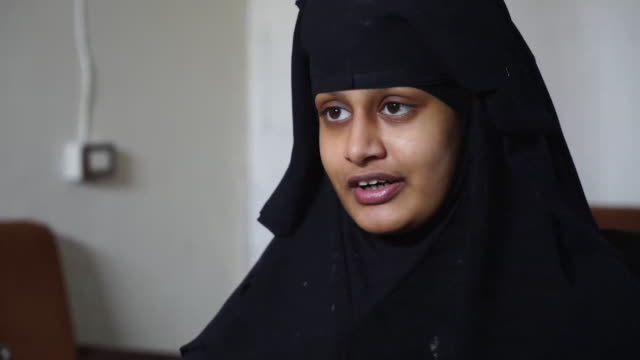Shamima Begum wins right to return to the UK

Shamima Begum has won the right to return to the UK to challenge the Home Office’s decision to revoke her British citizenship in person.
Begum, who left East London in 2015 to join the Islamic State (Isis) in Syria, won an appeal against a ruling by the Special Immigration Appeals Commission (Siac) earlier this year that found the Home Office’s decision to strip her British citizenship did not violate her human rights.
Under international law, it is only legal to revoke a person’s citizenship if they are entitled to citizenship in another country.
Siac ruled that Begum was not rendered stateless by the decision because she was entitled to Bangladeshi citizenship.
Former home secretary Sajid Javid has slammed the Court of Appeal’s ruling as a “national security risk” that would serve as a “lightning rod” for extremists.
“Whilst I respect the Court… there are important principles at stake. Any restrictions of rights and freedoms faced by Ms Begum are a direct consequence of the actions that she has taken, in violation of both government guidance and common morality,” said Javid.
“This is not solely a matter of justice, it is also a matter of national security.”
Javid said the move will create a “national security risk that cannot be fully mitigated, even with the diversion of significant resources”.
He added: “A consequence of this individual walking our streets would be that it serves as a lightning rod for both Islamist and far-right extremists.”
Begum left Bethnal Green in London aged 15 to join Isis at the height of its power. Following the terror group’s territorial defeat four years later, she was found in a Syrian refugee camp, nine months pregnant.
Then-home secretary Javid stripped her of her British citizenship, arguing that the Isis bride had the right to become a Bangladeshi citizen since her mother was born there, even though Begum herself had never visited Bangladesh.
Javid claimed the Isis bride would present a threat to national security if she were granted the right to return to the UK.
The move prompted a high-stakes legal battle in which Begum’s lawyers argued that the decision was unlawful because it left her stateless.
At a hearing at the Court of Appeal last month, Begum’s lawyers also argued that she could not effectively challenge the decision while she was banned from returning to the UK and remained in a camp in northern Syria.
The Court of Appeal has now ruled that “the only way in which she can have a fair and effective appeal is to be permitted to come into the United Kingdom to pursue her appeal”.
Lord Justice Flaux said: “Fairness and justice must, on the facts of this case, outweigh the national security concerns, so that the leave to enter appeals should be allowed.”
The judge found that “the national security concerns about her could be addressed and managed if she returns to the United Kingdom”.
In its ruling, the court said: “If the Security Service and the Director of Public Prosecutions consider that the evidence and public interest tests for a prosecution for terrorist offences are met, she could be arrested and charged upon her arrival in the United Kingdom and remanded in custody pending trial.”
In widely-watched TV interviews with British media upon her discovery in the Isis caliphate, Begum claimed she was “just a housewife” during her four year stint with the terror group.
Begum married a young Dutch fighter called Yago Riedijk three weeks after arriving, and gave birth to three children while living in the camp. Her children have all since died.
A Home Office spokesperson said: “This is a very disappointing decision by the Court. We will now apply for permission to appeal this judgment, and to stay its effects pending any onward appeal.
“The government’s top priority remains maintaining our national security and keeping the public safe.”